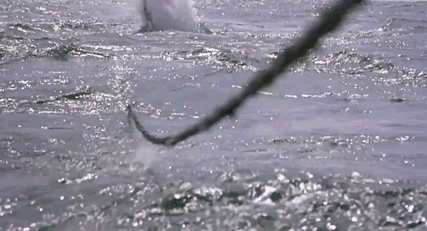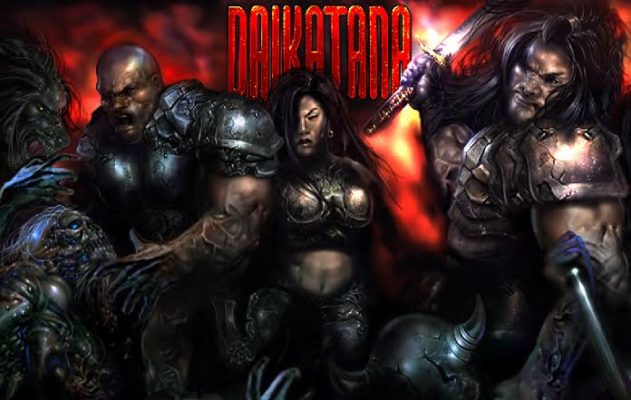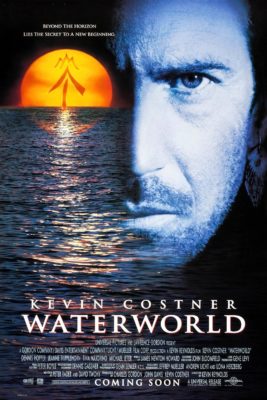Radio personality Ron Bennington described stand-up comedy as a game of “tell a joke, or become the joke”. Your audience has invested time into you, and they want it repaid. If you bomb and your jokes fall flat, be afraid. Your audience came here to laugh, and they’re going to do it, one way or another.
Id software co-founder John Romero was an extremely hot property in 1996. Heavily promoted as gaming’s bad boy, he’d just left id software and had launched a new company, Ion Storm, under the mantra “design is law”. Ion Storm promoted their debut game Daikatana with an ad campaign suggesting that FPS games had become lame and boring, and now long-haired John Romero was going to crash the party on a skateboard and kick everyone’s ass. Radical, dude!
Daikatana was supposed to be the next big thing. Instead, it became a joke. It missed its 1997 ship date, and then perhaps half a dozen ship dates after that. It finally came out in 2000 in a plague field of negative publicity, having gone through two engine upgrades, a full dev team, and thirty million dollars in funding.
What went wrong? It’s a long and fascinating story (told here by Gamespot’s Geoff Keighley) which, along with Duke Nukem Forever, has become an industry cautionary tale on hubris and perfectionism. Daikatana essentially ended Romero’s career as a Triple-A game dev, and he’s spent twenty years bouncing from company to company, leaving a shallow strew of indie and mobile shovelware.
Assuming you’re immune to the charms of Gunman Taco Truck and Pettington Park, Daikatana will likely remain Romero’s last hurrah as a game dev. Was it any good?
That depends on what you want. If you’re eager to play four badly designed half-a-games at once, with a graphical engine years out of date, it’s quite good.
It’s a first person shooter featuring “RPG” “elements” (LEVEL UP flashes on the screen occasionally, and this apparently does something.) Unlike Doom the game attempts to tell a story and establish a rich universe filled with lore, although it isn’t successful on either count.
We start off with a cutscene: an old man who is dying of polygon deficiency explains the plot to you. It goes on for quite a while. The developers must have realised they were boring the player, because they have ninjas jump out of the shadows, beat the shit out of the old man, and run away…after which he continues explaining the plot to you. A mood is created. I don’t think it’s the mood the developers intended.
The story is confusing, and the game as a whole lacks thematic direction. What’s the vibe here? Berserk? Bill and Ted’s Excellent Adventure? Doom? It’s neither funny nor dramatic. It reminds me of a ten year old boy play-acting Spiderman fighting Sonic the Hedgehog while he smashes action figures together. There’s time travel, ancient Greece, a black sidekick called Superfly (note the spelling) and an Asian female sidekick who’s into martial arts, a giant sword…
But that wouldn’t have mattered if the game was fun. Fun has an excellent track record of elevating games above their own conceptual stupidity. Not so here.
The game technically has “depth”, but so does the Marianas Trench. Eleven thousand meters of water and squid-shit isn’t interesting, and nor are Daikatana‘s huge stack of poorly-integrated, half-tested features.
Why shove an RPG-lite stats system into the game when it has no visible impact on gameplay? Why is there an XP system? What does it do, and why do I care? Why design unique enemies for every level when they all feel like variants of either “annoying fast flying enemy” or “annoying slow-moving bullet-sponge”?
None of the weapons obey logic. There’s a double-barrelled shotgun that fires six shots at once (???), a rocket launcher that shoots two twisty rockets that hit everything except the enemy you aimed them at, etc. This is MC Escher with a gun catalog. The titular weapon, the Daikatana, proves to be a gigantic sword that blocks a large portion of your screen when you have it equipped. It murders everything it touches, including your peripheral vision!
But the game’s absolute nadir is the sidekicks.
They have the worst AI I have ever seen. They run in front of your gun. They get stuck on corners. They get crushed by elevators. They ignore weapons on the ground and charge heavily-armed enemies using their fists. When they die you lose, and they exist at all times in a state of permanent about-to-die. They are comprehensively broken.
Daikatana is off-the-box unplayable because of the sidekicks. Un-fucking-playable. I don’t exaggerate. Daikanata literally cannot be played because of the sidekicks and you will frustrate yourself trying. Don’t bother.
Here’s what you should do instead: download the community-made 1.3 patch, which deletes the fucking sidekicks from the game, thus rehabbing it to “barely playable”. You’re welcome.
The graphics are visually interesting at times (how often do you see the colour purple in FPS titles?), but are mostly dull and ugly. There’s no vibrancy. Why did they upgrade from the Quake engine when the colour scheme recreates most of Quake’s excesses?
What else was happening in 2000? What did the market look like? System Shock 2, Perfect Dark, Deus Ex, Half Life, Unreal Tournament, NOLF, and two Quake games. Next to these titles, Daikatana looks like a game from 1997, with inferior playability. It isn’t as bad as people say: it’s worse.
No Comments »
Paralysis based on traumatic shock lasts for a few minutes. Careers based on cultural shock last only slightly longer. Irvine Welsh, Bret Easton Ellis, Clive Barker, and Will Self gained fame through transgression and then lost it, with the world moving on and forgetting them.
Chuck Palahniuk is still toiling on in 2018, though his 1996 book Fight Club increasingly resembles a tombstone. Adjustment Day tries to recapture Fight Club’s urgency, along with trying many other things. It’s a confused book, windmilling punches in all directions.
It begins as a parody of generational aggrievement. A surplus number of young men threatens to disturb the global order, and so the ruling classes plot a staged war to dramatically thin their numbers. But, at the urging of a tract by the Big Brother-esque figure of Talbott Reynolds, the young men rise up and eliminate the ruling class first, seizing control of the United States.
Adjustment Day is somewhat successful here, because Palahniuk manages to hit some socially relevant points (the young men share a list of names of people to kill and vote on them, like a Reddit thread). And the revolution, when it comes, is entertainingly ultra-violent.
But the book then shifts to a parody of cultural balkanisation. The United States splits into three nations, the exclusively homosexual Gaysia (which is run like a continent-sized bathhouse), the white ethno-state of Caucasia (which is like A Handmaid’s Tale), and the black ethno-state of Blacktopia (which is like Wakanda).
One of Adjustment Day‘s many weaknesses is that everything in it is exactly like something else. It doesn’t have an identity, it steals existence from other things. “Remember this? Were you aware of this? Remember the emotions this piece of media made you feel?” In a moment of desperation, Palahniuk even name-checks Fight Club, which feels like a musician trying to rouse a tepid crowd with an old hit.
The prose is spare and minimalist, but hard to read. Adjustment Day feels like eating a huge urn of light whipped cream. The characters are spasming balls of angst and introspection, none of them seeming like real people. The book soon collapses into broad farce before the ending occurs, which is so dull that I’ve already forgotten what happens.
I didn’t like it much.
No Comments »
Waterworld is a science fiction film that came out in 1995, stunning audiences around the globe with its bold vision of half-empty cinemas and poor box office profits.
The film depicts a future where water covers the entire planet, with the remnants of mankind surviving on bolted-together rafts and floating cities called “atolls”. The nameless protagonist (played by Kevin Costner) has evolved gills, allowing him to swim to the ocean floor and retrieve dirt and other artifacts.
Waterworld relies on TVTrope’s Rule of Cool, meaning that whenever entertainment and logic butt heads, entertainment wins. It’s not an overly realistic film. You can make it realistic, but only by assuming that much of what we’re told about the film’s world isn’t true.
For example, Kevin Costner’s gills. How plausible a detail is this? Would (or could) a population of humans living on an endless sea evolve gills?
First, we need to establish a time-frame: how far in the future does Waterworld take place? We aren’t told, but it’s probably decades to centuries. Long enough that humans have forgotten civilization, but short enough that artifacts of 20th century civilization remain. The base of the villainous “Smokers” is (in a heavy-handed touch) the Exxon-Valdez oil tanker, and it’s still floating. Production designer Dennis Gassner stated that the film is set in the year 2500[1], so let’s go with that.
There are big problems.
Five centuries is equal to only twenty human generations, which is not nearly long enough for complex new adaptions to appear in the human genotype. In evolutionary biologist Richard Lenski’s famous experiment, it took twenty thousand generations of e. coli[2] before a useful novel trait emerged in the bacteria (the ability to metabolize citrate). Considering a human generation length of 25 years, an equivalent time-span would be half a million years. We aren’t even within the right three orders of magnitude!
Evolutionary traits emerge slowly, through a grinding process of random mutations which appear at a rate of approximately 0.5×10-9 per basepair per year.[3] Even if the ambient mutation rate in Waterworld is ten times the normal rate (through elevated background radiation or whatever), that’s still only 0.5×10-8 per year. Virtually all of these mutations do nothing, the ones that do something typically cause a loss of function (it’s easier for a random change in our genetic code to break something than improve it), and even a beneficial mutation has a 50% chance of vanishing in a child of the next generation anyway.
It gets worse when you consider that the gills are clearly not a de novo (or new) mutation. The men on the atoll recognize the slits behind Kevin Costner’s ears as gills, and they even have a name for him (“Icthyus sapien”). They’ve seen gilled men before. Clearly, this trait has existed for a while, and might be undergoing a (insert joke here) Fisherian sweep, thus cutting the timeline further still: the gills might only be ten or fifteen generations old.
It’s vaguely possible that humans could evolve to be aquatic. We have examples of land-based mammals returning to the sea, the most famous being the cetacean order (whales and dolphins), which evolved from an amphibious ancestor not unlike the modern hippopotamus. But this process took millions of years, and cetaceans never evolved gills. They kept the respiratory method they already had: lungs. Gills, as far as we can tell, evolved only once[4].
And this leads to the second issue with humans evolving gills: we already have lungs.
You can’t just slap a set of gills on a human. Virtually every single thing about our respiratory system and upper-body bone system would need to change to accomodate them. A race of gilled men wouldn’t even look human. The men on the atoll wouldn’t have needed to check behind Kevin Costner’s ears to confirm that he’s a mutant. It would have been obvious at a hundred paces.
Fish require special bone structures called branchial arches to support their gills. The tetrapod lineage (which humans belong to) has long since repurposed those bones to make the thyroid gland, part of the jaw, the larynx, and the bones in the ear.
If Kevin Costner magically evolved gills, he would suddenly be unable to talk (because he’d have no larynx), unable to hear (he’d have no inner ear), and unable to eat (parts of his jaw and hyoid structure wouldn’t exist.)
Truthfully, gills probably wouldn’t evolve in humans given any length of time. We’ve gone too far down a different path. Evolution would have to awkwardly walk back many millions of years of development to our chest cavities, and then start again from square one. Lungs can’t evolve into gills any more than brains can evolve into livers. It doesn’t work that way.
Even if gills were a desirable method for breathing in humans (which they probably aren’t) evolution is highly limited by the fact that it’s step based, with all intermediate forms needing to be viable. In other words, humans can’t halfway evolve gills. Imagine a toy model of gills that relies on only five traits. 1) a Branchial arch 2) a transport mechanism for moving oxygen around the body 3) a filtering system for elimination of waste 4) the gill tissue itself 5) and a gill spiracle, or slit. All of these would need to be present for the creature to survive. Suppose a creature miraculously evolved 1-4, but not 5. It would instantly suffocate, as it couldn’t expel water from the gills.
Truthfully, gills aren’t even the wackiest stuff in the movie. There’s an embarrassing part where Kevin Costner fights a Resident Evil 4 boss. Where did this thing come from in 500 years?

You might ask “are these even gills? Or are they some weird new breathing method that everyone calls gills out of convenience?” Good questions, which I’d answer “no” and “yes”.
These things look and behave nothing like gills.
1) they’re too small to be gills. Costner’s ear-slits are just a few inches long. Compare with how big gills are on fish, and consider that humans are endotherms, regulating their own body temperature, meaning we have significantly higher oxygen needs. We could never survive with gills that small.
2) They’re too efficient to be gills. An adult human aspirates about eight liters of air per minute – hold your hand in front of your nose, and feel how much air you’re pumping out of your body. Water only has about 5% as much oxygen by volume as air, so if we assume that gilled humans have similar oxygen needs, Kevin Costner would need to “breathe” one hundred and sixty liters of seawater every minute just to survive. (Note that there’s even less dissolved oxygen in the deep oceans where the Mariner dives).
By way of comparison, the fog nozzle hoses used by firefighters typically discharge 60 litres of water a minute. Each of those tiny slits behind Kevin Costner’s ears is blasting a high-pressure jet of water that’s stronger than a firefighter’s hose. Even if he could do this, he’d rapidly exhaust the local environment of oxygen and suffocate. The gills could only be used for brief dives, not lengthy underwater swims as shown in the movie.
3) Visual evidence is…incompatible with gills. Here’s a screen-capture of Kevin Costner underwater. There’s a massive problem – can you see it?

His mouth is shut! How is oxygenated water entering his body? Through his nostrils? Those tiny openings that are designed to stop water getting in? Are those tiny holes sucking in a hundred and sixty liters per minute?
Or consider this shot, where we see bubbles appearing from Costner’s…mouth. Huh? Shouldn’t they be coming from behind his ears, where the gills are?

Most damning is the mouth to mouth resuscitation scene with Jeanne Tripplehorn. There’s no air in Costner’s lungs! How is he doing this?

I have no clue how he’s breathing. But he is absolutely not using gills.
Given the confused terminology used by the characters (one asks if the gills are fully functional or merely “vestigial”, which makes no sense – a vestigial part is a functionless organ left behind by evolution, not a new one), it makes most sense to assume this is a totally novel breathing mechanism that everyone calls gills because they don’t know any better.
Given all of the above strangeness, how does Waterworld waterwork?
There are two theories:
1. Waterworld is set on alien planet. This would solve many plot issues (such as how the melting of the polar ice caps covered the entire world), but create many bigger ones. We see countless terrestrial artifacts: crayons, cigarettes, bottles of Jack Daniels, and even a photograph of Joseph Jeffrey Hazelwood (the captain of the Exxon-Valdez). The film is absolutely set on Earth.
2. Waterworld is The Truman Show.
Let’s ignore the opening narrative (who is this person, and why assume they’re truthful?). Suppose that a futuristic government cordons off a large area of ocean, fills it brainwashed or deluded people, and allows them to think that the ocean covers the entire world. How would they ever know otherwise? The occasional sailors who reach the shore could be turned back (after being brainwashed again).
This provides explanations for the “gills” (genetic engineering), the sea monster (genetic engineering), the fast-decaying tobacco and oil (discreetly supplied by the government to add excitement to the game, like a weapon at a WWE event), and a host of other problems. (It should be noted that in 1997 Acclaim published a four-issue comic series which tried to address some plot problems. For example, the main character is explicitly genetically engineered.)
But it would have made for an unsatisfying story. Trick endings only work if the truth is more interesting than the illusion (Psycho, The Usual Suspects, and The Sixth Sense), and if it’s not (The Village), the audience feels cheated. “It’s all fake!” is troubling note to end on in a movie devoted to heroism and bravura spectacle, and the screenwriters were probably wise not to go down that route.
And despite the film’s problems, the ending rings true. Everyone thinks Costner’s character is crazy for wanting to go back to the water, but if we take the film at face value, he’s the only sane one there. The future of humanity isn’t on a tiny, plague-ridden island, it’s in the ocean, and he is one of the first of the new race.
Sources:
1. The Making of Waterworld by Janine Pourroy (August 1995). Production designer Dennis Gassner states: “The date was 2500.”
2. Blount, Lensky, et al, Proceedings of the National Academy of Sciences (DOI: 10.1073/pnas.0803151105)
3. Scally A (December 2016). “The mutation rate in human evolution and demographic inference”. Current Opinion in Genetics & Development. 41: 36–43. doi:10.1016/j.gde.2016.07.008. PMID 27589081.
4. Origin of Vertebrate Gills, Nature 2017/02/22
No Comments »






